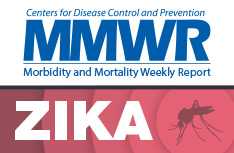Testing Guidance
CDC recommends Zika virus testing for
- Anyone with possible Zika virus exposure* who has or recently experienced symptoms of Zika.
- Symptomatic pregnant women with possible Zika virus exposure
- Asymptomatic pregnant women with ongoing possible Zika virus exposure
- Pregnant women with possible Zika virus exposure who have a fetus with prenatal ultrasound findings consistent with congenital Zika virus infection
Zika testing may be considered for
- Asymptomatic pregnant women with recent possible but no ongoing exposure to Zika virus (i.e., travelers)
Zika virus testing is not recommended for
- Non-pregnant asymptomatic individuals
- Preconception screening
*Possible exposure includes living in, traveling to, or having unprotected sex with someone who lives in or traveled to an area with risk of Zika.
Testing Guidance for Non-Pregnant Symptomatic Individuals
Non-pregnant symptomatic individuals with possible exposure to Zika virus should receive testing of serum and urine by Zika virus ribonucleic acid (RNA) nucleic acid testing (NAT) and Zika virus and/or dengue virus IgM testing of serum. NAT testing is dependent on the timing of specimen collection. NAT testing should be performed on specimens collected <14 days after symptom onset. Zika virus and dengue virus IgM serology testing should be performed on NAT negative samples collected <14 days after onset of symptoms or on samples collected ≥14 days after onset of symptoms. NAT testing is not recommended on specimens collected ≥ 14 days after symptom onset.
See the testing algorithm for non-pregnant symptomatic individuals. [PDF – 1 page]
Testing Guidance for Symptomatic Pregnant Women
Symptomatic pregnant women with possible Zika virus exposure should receive concurrent testing of serum and urine by NAT and Zika virus IgM testing of serum as soon as possible, up to 12 weeks after symptom onset.
- A positive NAT result on both serum and urine, regardless of IgM results, should be interpreted as an acute maternal Zika virus infection.
- A positive NAT result on either serum or urine, in conjunction with a positive Zika IgM, should be interpreted as evidence of acute Zika virus infection.
- A negative NAT result in conjunction with a non-negative Zika virus IgM test result should be followed by plaque reduction neutralization test (PRNT). See laboratory interpretation [PDF – 1 page] in the absence of PRNT testing.
See the testing algorithm for symptomatic pregnant women: English [PDF – 2 pages] | Spanish [PDF – 2 pages]
Testing Guidance for Asymptomatic Pregnant Women
Asymptomatic pregnant women with ongoing possible Zika virus exposure (i.e., residence in or frequent travel to an area with risk of Zika) should be tested. NAT testing is recommended three times during pregnancy. IgM serology testing is not routinely recommended. Recommendations for the timing of NAT testing are at the initial prenatal care visit, followed by two additional NAT tests performed during pregnancy, coinciding with non-consecutive prenatal visits. Timing of additional NAT testing may be informed by jurisdictional trends in Zika virus transmission, the expected length of Zika virus nucleic acid detection in serum, and the duration of exposure during pregnancy. Although not routinely recommended, after pre-test counseling and individualized risk assessment, physicians and patients, through a shared decision-making model, may collaboratively elect to have IgM testing performed concurrent with NAT testing. For women who have a positive NAT test during pregnancy, additional NAT testing is not recommended. If a patient has previously been confirmed positive for Zika virus infection, no additional IgM serology testing is recommended.
Asymptomatic pregnant women with recent possible exposure to Zika virus but no ongoing exposure (i.e., travelers) may be considered for testing. Although not routinely recommended, testing may be considered on a case-by-case basis using a shared physician-patient decision-making model and in line with jurisdictional recommendations. If testing of asymptomatic pregnant women is performed, the same algorithm as for symptomatic pregnant women should be followed using the timeframe from the last possible exposure to Zika virus.
Note: Jurisdictions may take into account local epidemiologic considerations (e.g., seasonality, geography, and mosquito surveillance and control factors) in making recommendations for Zika virus testing for this group of pregnant women; therefore, testing recommendations for this group of pregnant women may differ by jurisdiction. Please contact your state, tribal, local, or territorial health department for jurisdiction specific guidance.
Pregnant women with possible exposure to Zika virus and who have a fetus with prenatal ultrasound findings consistent with congenital Zika virus infection should be tested. NAT and IgM testing should be performed on maternal serum and urine following the algorithm for symptomatic pregnant women. If amniocentesis is being performed as part of clinical care, NAT testing of amniocentesis specimens should also be performed. Testing of placental and fetal tissues may also be considered.
See the testing algorithm for asymptomatic pregnant women: English [PDF – 2 pages] | Spanish [PDF – 2 pages]
Clinician Materials
When to Test for Zika Virus
Zika Pregnancy Screening Tool
Zika Testing Algorithm for Symptomatic Pregnant Women
Zika Testing Algorithm for Asymptomatic Pregnant Women
Pretesting Counseling Guide for Asymptomatic Pregnant Women with Ongoing Exposure to Zika
Pretesting Counseling Guide for Pregnant Women with Symptoms of Zika
Pretesting Counseling Guide for Asymptomatic Pregnant Women without Ongoing Exposure to Zika
Patient Materials
Only Some People Need Zika Testing
Make sure to get your Zika test results
Fact Sheet: What happens when I am tested for Zika and when will I get my results?
What You Should Know About Zika Virus Testing: For asymptomatic pregnant women with ongoing exposure to Zika
What You Should Know About Zika Virus Testing: For symptomatic pregnant women with exposure to Zika
What You Should Know About Zika Virus Testing: For asymptomatic pregnant women with recent exposure to Zika
- Page last reviewed: September 7, 2017
- Page last updated: September 7, 2017
- Content source:





 ShareCompartir
ShareCompartir